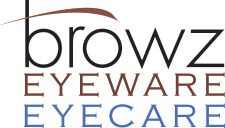Most parents believe they would be aware if their child had an eye or vision problem. That’s not always the case, for a variety of reasons. To begin with, children frequently cannot communicate or recognize the vision deficits they are experiencing, and vision is frequently overlooked when behavioral issues manifest, or a child isn’t doing well at school or while playing sports.
Additionally, many eye or vision issues don’t display identifiable symptoms until they have progressed, making treatment more difficult once the problem is diagnosed.
Here are some questions and answers about children’s vision that every parent should know:
Q: How often should I take my child to the eye doctor?
A: When it comes to children’s eye health, a child should have their eyes assessed at 6 months of age, and again at age 3, or as directed by their eye doctor. All children should have another comprehensive eye exam before they start school, and every year after that. Children’s eyes grow and change as they grow.
Q: What does an eye exam entail?
A: During your child's eye exam, an eye doctor typically asks them to read letters - or shapes, if they’re not able to read - to determine their prescription level. The eye doctor may also ask you and your child about day-to-day vision problems and school performance. The eye doctor will then decide what to do based on the results of the eye exam and self-reported concerns.
Q: How do I know if my child needs glasses?
A: A comprehensive eye exam with an eye doctor is the only way to know for sure if your child requires glasses to correct nearsightedness, farsightedness, astigmatism, or any other vision problem.
Since vision problems are commonly missed during screenings, vision screenings at school or at the pediatrician's office are not a substitute for a full children's eye exam.
According to the American Optometric Association (AOA), almost 25% of all school-aged children have some sort of vision problem.
Signs that a child has a vision problem include: sitting too close to the television or black board, using a finger to follow along while reading, frequent eye rubbing, squinting and low academic grades.
Q: Should my baby wear sunglasses?
A: Yes, you should definitely choose baby sunglasses that provide 100 percent UV protection to safeguard your infant's or young child's eyes from the sun.
The majority of UV ray damage to our eyes is caused by exposure to the sun by the age of 18. For this reason, it's important to start protecting your child's eyes from harmful UV exposure as early as possible.
The lens of a child’s eyes allow more UV rays to pass through and reach the retina than an adult's lens. Making sure your baby wears sunglasses that block 100 percent UV rays will lower their risk of developing cataracts and age-related macular degeneration, among other eye conditions, later in life
Q: Are contact lenses safe for children?
A: Contact lenses are safe for children, and can be tolerated by the human eye from an early age. Even infants are fitted with contacts in some situations to help them overcome eye conditions such as congenital nystagmus.
The main considerations are readiness and maturity. Assessing how willing your child is to wear and properly care for their lenses makes all the difference.
For example, sleeping with contacts designed for daytime use increases the risk of eye infections. In addition, your child should be able to insert and remove the lenses without difficulty, as well as clean and disinfect the lenses after each use with contact lens solution. While daily disposable lenses need to be inserted under hygienic conditions, they are discarded each day, without the need for disinfection.
A child's ability to wear contacts is often determined by how motivated they are to do so. Even if you wear contacts yourself, don't assume your child wants to. Some children are completely content with their glasses and may not be interested in contacts until they are adults.

